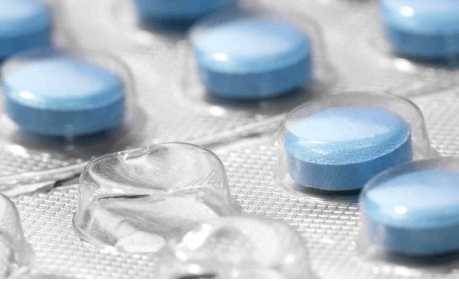Viagra and Health Conditions: What You Should Consider Before Using It

Not just a one-size-fits-all solution.
Let’s be honest—erectile dysfunction is not the taboo it once was. It’s common, it’s treatable, and for many men, it’s manageable with the right medication. But before jumping into the world of ED meds, it’s important to take a closer look at the fine print, especially if you’re living with other health conditions.
Because here’s the truth: what works wonders for one guy could pose serious risks for another.
These medications aren’t magic bullets. They interact with your body—your whole body—and that includes every other condition, prescription, and daily habit you’ve got going on.
If you need to find more about Viagra, you can see more here.
First, the Basics: What ED Meds Actually Do
ED medications—such as those in the PDE5 inhibitor class—help increase blood flow to the penis, allowing men to achieve and maintain an erection during sexual stimulation. They work by relaxing the blood vessel walls, which allows more blood to flow where it’s needed.
Sounds simple enough. But remember—your cardiovascular system isn’t compartmentalized. These meds affect blood pressure, circulation, and in some cases, heart rate. So if you’re dealing with heart disease, high blood pressure, or taking certain medications, these effects matter.
Heart Disease: The High-Stakes Category
If you’ve ever had a heart attack, stroke, or live with angina, your heart’s ability to handle increased physical activity—yes, including sex—is already compromised.
Now add a vasodilating drug into the mix? Things can get risky, fast.
Some ED meds are known to interact dangerously with nitrate medications used for chest pain or heart failure. Taking both can cause a sudden drop in blood pressure that may be life-threatening. That’s why anyone with a cardiac history should consult their doctor before starting treatment.
You might be cleared to use it—or you might need an alternative. Either way, a thorough medical review is step one.
High or Low Blood Pressure: The Fine Line
Blood pressure issues are common in the same age group affected by ED, so this one’s tricky.
- If you’re on blood pressure meds: Combining with ED medication may amplify the effect, potentially lowering blood pressure too much.
- If you have uncontrolled hypertension: ED meds might be off the table until your numbers are better managed.
- If you have hypotension (low blood pressure): Adding anything that further reduces vascular resistance could increase dizziness, fainting, or falls.
Translation? Don’t self-prescribe. A quick online consultation with a licensed provider can help you assess the safety in your specific case.
Diabetes: A Common Link—and a Common Concern
Men with diabetes are significantly more likely to experience ED. The good news? Many respond well to ED meds. The not-so-good news? Diabetes often comes with complications—nerve damage, heart issues, and kidney strain—that need to be factored in.
Here’s what matters:
- How well your blood sugar is controlled
- Whether you’re on other medications like insulin or diuretics
- Your cardiovascular risk level
If managed responsibly, ED treatment can work safely for diabetics—but it has to be done under medical supervision, especially if other complications are present.
Kidney and Liver Conditions: Slower Metabolism, Higher Risk
Both the liver and kidneys play a role in processing medications. If either isn’t functioning at full capacity, the drug might stay in your system longer than intended.
That means:
- Delayed elimination = longer side effects
- Increased blood levels = heightened risk of complications
- Unpredictable timing = less control over how long it takes to kick in or wear off
Dosing may need to be adjusted. And in some cases, certain ED meds may not be recommended at all.
Mental Health Medications: Double-Check for Interactions
If you’re taking antidepressants or anti-anxiety medications, it’s worth noting some of them already contribute to sexual side effects—including ED.
Adding a treatment for ED into that mix might help—but not if there’s a risk of drug interaction.
In rare cases, combinations can lead to serotonin syndrome or other complications. That’s why open communication with your provider (or pharmacist) is key.
Don’t Forget the Lifestyle Stuff
Let’s not ignore the obvious: ED doesn’t happen in a vacuum. Smoking, alcohol use, obesity, and sedentary habits all contribute—and may also affect how well ED meds work.
Even over-the-counter supplements, like certain herbal boosters or pre-workout drinks, can interfere with effectiveness or raise blood pressure unexpectedly.
If you’re treating ED without also addressing the habits that contribute to it, you’re working uphill.
Final Thought: It’s a Personal Decision—with Medical Backing
Yes, ED meds are effective. Yes, they’re more accessible than ever. But they’re not casual-use products.
If you’re managing a chronic condition, your treatment plan needs to reflect your full health picture—not just your symptoms.
So before clicking “add to cart,” make the real first move: talk to someone. Your heart, brain, kidneys—and peace of mind—will thank you.
Read More: Pokemon go hub






